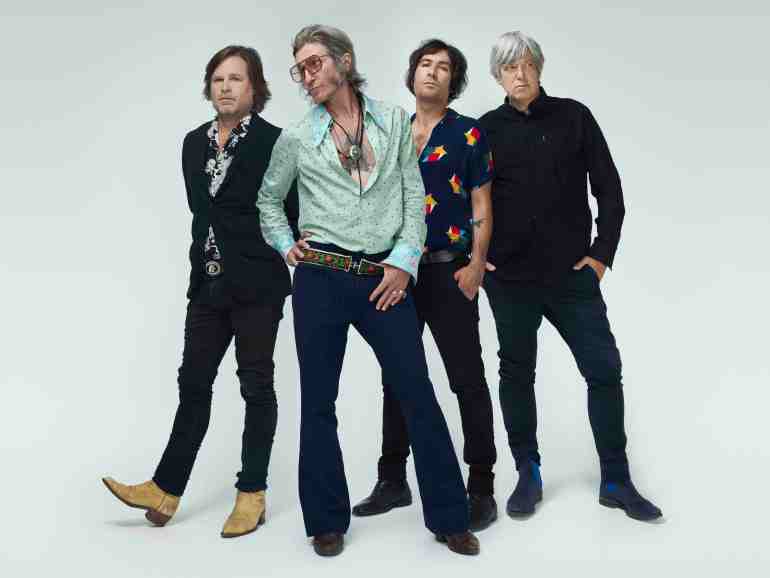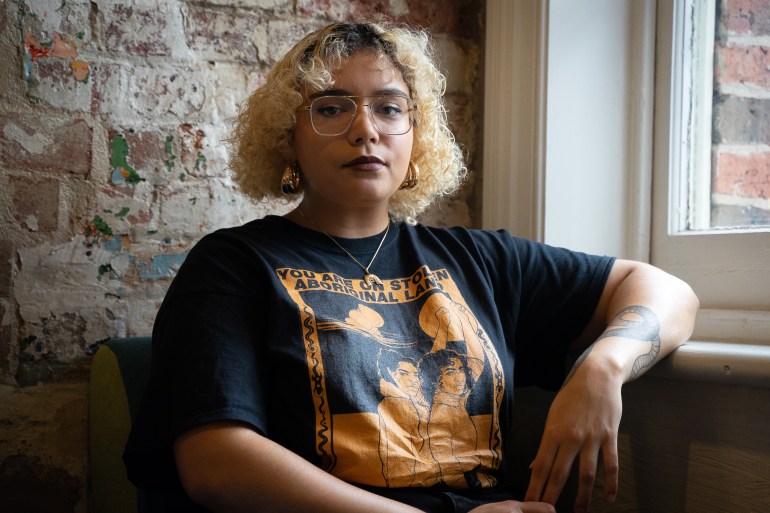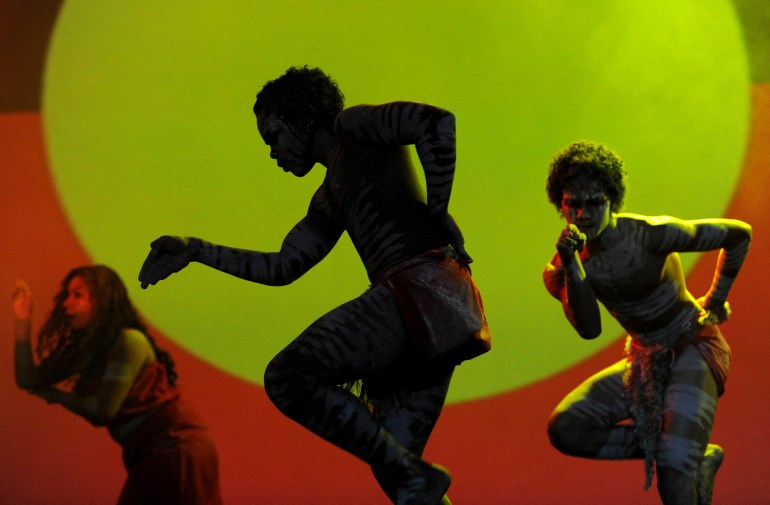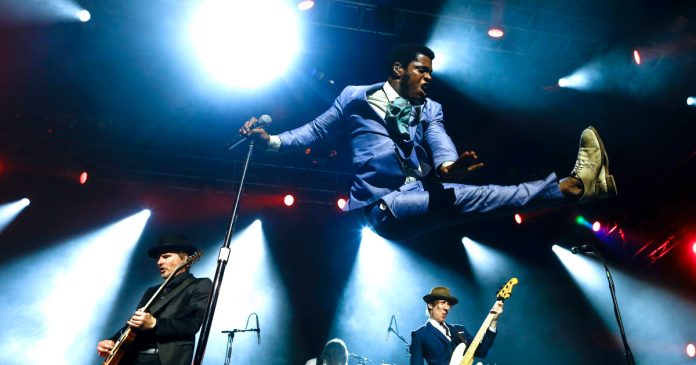Melbourne, Australia – Peter Noble remembers the moment when he had to close his music festival just hours before it opened.
“It was a shock-horror-trauma situation not only for me, but for my entire team,” he told Al Jazeera.
Noble is director of Bluesfest, an annual Australian music festival that featured stars like James Brown, BB King and Norah Jones.
Held in the popular coastal town of Byron Bay in northern New South Wales, the award-winning Bluesfest draws approximately 25,000 people to the area and generates millions for the local economy.
However, due to the effects of COVID-19, the festival was closed by Australian health authorities the night before it opened due to a single case in the area.
Peter Noble had to cancel this year’s Bluesfest the evening before [Courtesy of Peter Noble/Bluesfest]”We were ready to go and talked into the night before the public health order cancellation,” said Noble. “I still shake my head and say, ‘Was that the only option?’
“Not only were we closed, but our entire region was up to an hour away by car. The losses are unpredictable. It’s not just the millions of dollars that we have lost and lost, but the tens of millions of dollars that our region has lost because it has not been able to fully trade. “
The cancellation in 2021 at the beginning of the year came after last year’s event had been canceled. In 2020, they were announced three weeks in advance.
The cancellation of music events due to the coronavirus has hit the Australian music industry hard across the board.
Not only big festivals like the Bluesfest were closed, also smaller bar gigs had to close, tours were canceled and even rehearsal and recording capacities were restricted due to persistent lockdowns.
Economic modeling by consulting firm PwC Australia shows that the Australian music industry was worth 1.82 billion Australian dollars (1.36 million US dollars) in 2019 – a number that is projected to collapse by as much as 90 percent in 2020.
Followers of the Australian music scene You Am I saw their 32-year-old march nearly grind to a halt due to the pandemic in March 2020.
The band members live in different Australian states and even had to record their new album remotely due to travel restrictions.
“We just had to adapt,” bassist and manager Andy Kent told Al Jazeera. “We kind of managed to make a record when we weren’t even in the same state.”
The Australian music industry has traditionally relied on touring and performing live to generate income and promote artists.
You Am I, who started playing together in 1989, understands the importance of performing live for new and emerging bands very well.
“If you have 2,000 people in one room, your merch is [merchandise] Sales will increase, ”said Kent. “And when you tour a lot, there are a lot of people interacting with you, so your profile and the likelihood that you will play on the radio or your record sales will go up.”
 You Am I managed to record a new album even though they were all in different states of Australia and couldn’t travel across borders [Courtesy of You Am I]Kent tells Al Jazeera that while You Am I has been fortunate enough to have over 30 years of experience and a solid, loyal following, the lack of touring and performing opportunities is a major challenge for new and emerging bands.
You Am I managed to record a new album even though they were all in different states of Australia and couldn’t travel across borders [Courtesy of You Am I]Kent tells Al Jazeera that while You Am I has been fortunate enough to have over 30 years of experience and a solid, loyal following, the lack of touring and performing opportunities is a major challenge for new and emerging bands.
“That core core that is playing in front of so many people is very important to the music business and these tour bands,” he said.
Go live online
But the up-and-coming indigenous soul singer Kee’ahn rose to the challenge and released her debut single Better Things in mid-2020.
With her hometown Melbourne in the midst of a month-long lockdown, Kee’ahn felt it was indeed the right time to release the song.
“I figured I really want to release this song because I love it and I think it could be helpful at this stage of anything,” Kee’ahn told Al Jazeera.
With no way to perform live or on tour to support the release of Better Things, the song still attracted radio airplay from its online release alone and even won an award at the 2020 National Indigenous Music Awards.
“Everyone was online [due to the lockdown] so it exploded like that, ”said Kee’ahn.
The singer – whose name means “dance, sing and play” in her family’s indigenous Wik language – says the lockdown opened up opportunities online that many musicians may not have considered before.
“I’m personally very interested in it [in how] Tik Tok and Instagram have influenced how music and [how] Artists can capitalize on streams and start a music career without actually performing live, ”she said.
“I really like the online space that performs live on Zoom and IG. The younger generation can adapt to the online space. I’m not saying the older generation can’t, but I think it’s easier [for young people]. “
 Kee’ahn is keen to explore the possibilities that live streaming on social media platforms opens up [Ali MC/Al Jazeera]Despite the possibilities of online engagement, however, Kee’ahn also recognizes the limits.
Kee’ahn is keen to explore the possibilities that live streaming on social media platforms opens up [Ali MC/Al Jazeera]Despite the possibilities of online engagement, however, Kee’ahn also recognizes the limits.
“It’s not the same thing to do online through Zoom,” she said. “But it does highlight how accessible music online can be for people who cannot go in person. I [still] think live music is really important. “
Noble continues to insist that Australia’s live music industry needs support.
“I just don’t want this to be the end of the big live music events in Australia,” he said. “I see people turning to streaming events and that really concerns me.”
Musicians and artists were able to take advantage of the Australian Government’s Jobkeeper Allowance, a minimum wage system to support workers who became unemployed as a result of the COVID-19 fallouts.
Access to Jobkeeper has now ended, however, and while the government has allocated an additional A $ 135 million ($ 101 million) to support the industry, that is well below the nearly A $ 2 billion ($ 1.5 billion) that are generated annually.
Noble says live music in particular is vital, not just to the concert experience for the audience, but also to the income it generates for musicians.
“With CD income virtually zero and streaming zero, the music industry relies on performing live for its income,” said Noble.
“And now I see streaming events replacing live music events. I can guarantee you that the payments from those for the artists are not equal to or even close to what artists receive for live performances. “
Noble says the Australian government should support the music industry as much as it has supported the return of the sport.
Tens of thousands of people can now attend sports games and an Olympic team has been sent to Tokyo, despite the fact that Australia has some of the most draconian travel restrictions in the world due to COVID-19 – to the point that even citizens were unable to get home.
 Peter Noble hopes that the Bluesfest can finally take place in October with an all-Australian cast [File: Torsten Blackwood/AFP]Still, strict social distancing measures have dramatically reduced the capacity for live music venues, and laws have even been passed banning dancing.
Peter Noble hopes that the Bluesfest can finally take place in October with an all-Australian cast [File: Torsten Blackwood/AFP]Still, strict social distancing measures have dramatically reduced the capacity for live music venues, and laws have even been passed banning dancing.
“There’s a joke going around the industry that all musicians should walk on stage in a soccer sweater and kick a ball into the audience, and we’re not being canceled,” Noble said. “But there’s a lot of truth in this joke.”
Despite the challenges COVID-19 has brought, Noble is organizing the Bluesfest for the third time.
Now taking place in October with an all-Australian cast, he said it was “very difficult for us to get up and off the mat”.
The festival – and the live music – can still be tested.
COVID-19 has returned for an encore and Sydney is in the midst of a new outbreak triggered by the more transmissible Delta variant.

